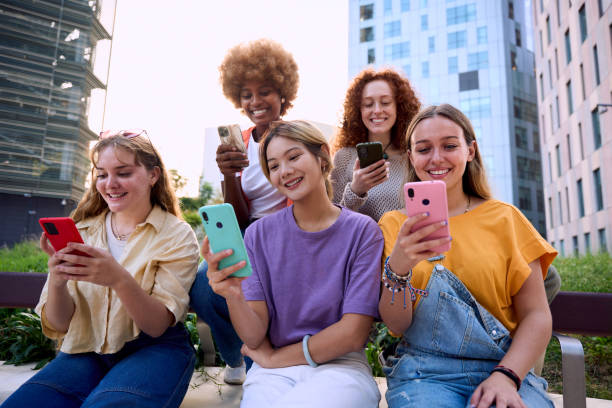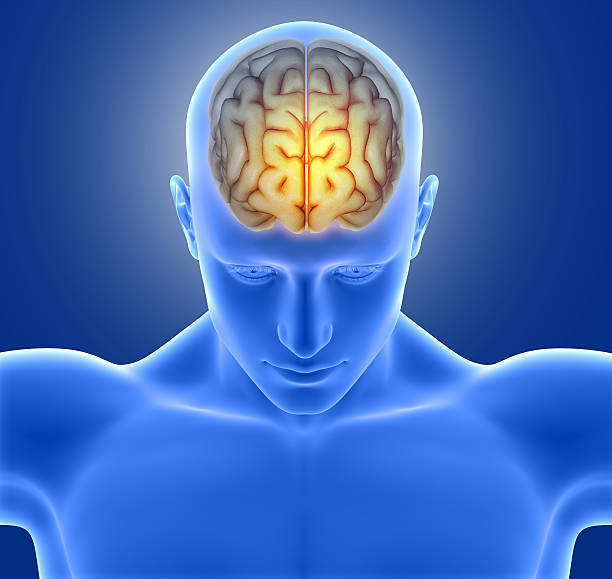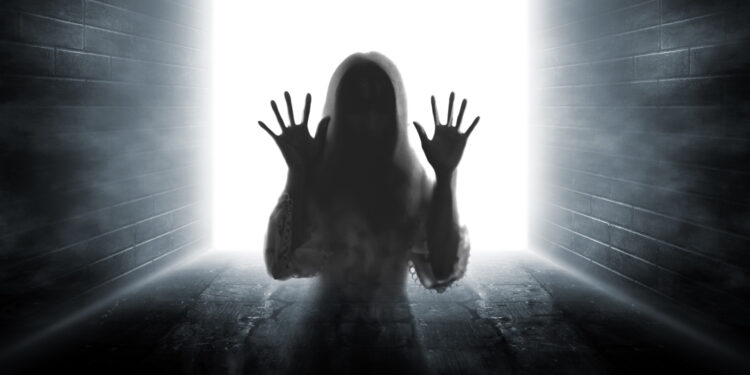Psychology, once a specialized domain confined to the world of academia and clinical professionals, has exploded into mainstream culture. Fueled by social media, podcasts, influencers, and viral trends, psychology has evolved into a vast landscape where everyone has something to say, from the latest TikTok sensation to the meme creators of Twitter. As a result, we’ve entered an era where popular psychology—often called “Pop Psychology”—has become a constant part of our daily conversations, memes, and self-help practices.
What is truly fascinating about the rise of Pop Psychology in the age of Gen Z is how the younger generation has embraced these psychological concepts, repurposing them to better understand their emotional experiences and social realities. From exploring mental health awareness to unpicking the nuances of human behavior through memes, the way Gen Z talks about psychology is shaping the way we view ourselves, our relationships, and the world around us.
Among the many psychological theories and concepts that have gained traction in recent years, none have been quite as viral and emotionally charged as what is commonly referred to as the “Burnt Toast Theory,” which has captured the imagination of social media users everywhere. But what is it about this particular theory that resonates so deeply with Gen Z? What does this theory—and others like it—say about how young people are making sense of the complexities of modern life?
In this article, we’ll explore the fascinating world of Pop Psychology and dive deep into some of the latest theories, including the Burnt Toast Theory, and explain how these concepts provide a lens through which Gen Z interprets personal struggles, relationships, and societal challenges. We’ll examine the scientific foundations behind some of these ideas, question their validity, and explore why they’re so attractive to this generation.
The Rise of Pop Psychology
The term “Pop Psychology” refers to the wide array of psychological theories, concepts, and self-help advice that are simplified, sensationalized, or distorted to appeal to mass audiences. It differs from academic psychology in that it’s not bound by rigorous peer review, and many of the concepts are stripped of their scientific nuance. However, what Pop Psychology excels at is reaching people on an emotional and personal level.
In an age where mental health is finally being acknowledged as just as important as physical health, Pop Psychology has become a tool for destigmatizing emotions and behaviors that were once considered taboo. Concepts such as emotional intelligence, imposter syndrome, and self-care have entered everyday vocabulary. Gen Z, the first generation to grow up with the internet and social media as second nature, has embraced these psychological insights in a way that feels organic and relevant to their daily lives.
What makes this particular generation unique in its engagement with psychology is how they apply these theories. No longer content to simply learn about mental health through textbooks or therapists, Gen Z actively integrates these ideas into their conversations and daily routines. They share memes about “toxic positivity,” define their own love languages, and joke about the importance of “boundaries” when interacting with others. These psychological concepts are not just educational—they are practical tools for navigating the challenges of modern life.
The Burnt Toast Theory: Understanding Its Popularity
One of the most talked-about psychological theories among Gen Z is the “Burnt Toast Theory.” But what exactly is this theory, and why has it become so popular? In its simplest form, the Burnt Toast Theory posits that when one small thing goes wrong—like burning a piece of toast—it can trigger a disproportionate emotional reaction. In other words, the burnt toast serves as a metaphor for the frustrations that accumulate over time, ultimately leading to emotional overload.
For many, the burnt toast symbolizes those little annoyances or setbacks that, when combined, can feel like an overwhelming catastrophe. A burnt piece of toast may seem trivial, but it can evoke anger, disappointment, or frustration, emotions that are actually rooted in a deeper sense of exhaustion or stress from accumulated life challenges. It’s a way of expressing how people often project their internalized struggles onto the smallest irritants.
What’s fascinating about the Burnt Toast Theory is that it’s a hyper-simplified, yet accurate, reflection of human behavior. According to psychological studies on stress and emotional regulation, people tend to react more intensely to minor events when they’re already under stress. This phenomenon is called “stress spillover.” Essentially, our emotional resources are depleted by larger, ongoing challenges, leaving us less able to cope with smaller issues.
While Gen Z has largely adopted the Burnt Toast Theory as a way of coping with their own frustrations, there’s an underlying scientific principle that makes this concept more than just a viral meme. The Burnt Toast Theory connects to the real psychological phenomenon of “cognitive overload,” which occurs when we experience too much stimulation or information at once, leading to poor decision-making and emotional outbursts. The idea that a small thing—like burnt toast—could trigger a larger emotional response is grounded in this concept of cognitive overload and emotional regulation.
The Relationship Between Social Media and Psychology
Gen Z’s embrace of Pop Psychology is not just about self-help trends or viral theories. It’s also deeply intertwined with social media, a platform that serves as both a community for sharing personal experiences and a mirror reflecting societal values. Through TikTok, Instagram, and Twitter, Gen Z has created a new language for discussing mental health, relationships, and life struggles—one that is accessible, inclusive, and often humorous.
Social media has created an environment where psychological theories are not only discussed but also dissected and personalized. For example, the concept of “gaslighting,” a form of psychological manipulation, has entered the mainstream vocabulary as Gen Z navigates the complexities of relationships in an era of online dating and social media interactions. Similarly, discussions about “attachment styles,” “narcissistic abuse,” and “toxic relationships” have found a home in the digital spaces that Gen Z occupies, where these concepts are not only normalized but actively discussed in ways that break down the stigma surrounding mental health.
But social media also complicates this relationship with psychology. On the one hand, platforms like TikTok offer a space for users to find solidarity and validation in shared struggles, providing a sense of community for those experiencing mental health challenges. On the other hand, social media’s rapid consumption and algorithm-driven content can exacerbate feelings of anxiety, depression, and self-doubt. This duality is reflected in the way Pop Psychology manifests online—both as a tool for empowerment and a source of distress.
The Psychological Impact of Memes
In the realm of Pop Psychology, memes have emerged as a powerful vehicle for communicating psychological ideas. Memes are not just funny images or captions; they’re a form of social commentary and emotional expression that allow people to share their feelings and experiences in a digestible, often humorous way. Gen Z has mastered the art of the meme, using humor as a way of coping with their struggles while simultaneously highlighting important psychological concepts.
For example, the “I’m fine” meme is a perfect example of how Pop Psychology has infiltrated meme culture. It often shows someone in an obviously distressed state, claiming they are “fine.” This meme is a reflection of the dissonance between outward appearances and inner emotional states, a concept rooted in the psychological theory of cognitive dissonance. It taps into a universal feeling that many people experience—the pressure to appear “okay” even when they’re struggling internally.
These memes function as shorthand for deeper psychological ideas. They capture the essence of human emotion in a way that is both lighthearted and deeply relatable. In a society where mental health conversations have become more mainstream, these memes act as a form of peer support, giving Gen Z a way to laugh at their struggles while also making a point about the importance of mental health awareness.
Toxic Positivity: The Dark Side of Feel-Good Psychology
One of the most talked-about psychological concepts in Pop Psychology today is “toxic positivity.” This idea critiques the cultural obsession with always being happy and “positively” framing every situation, no matter how difficult. In an age where self-help messages, motivational quotes, and Instagram influencers bombard us with advice on how to “live your best life,” toxic positivity represents the dark side of this relentless pursuit of happiness.
Gen Z has, to some extent, rejected the notion that every emotion must be framed positively. They are more likely to express their frustrations and acknowledge the validity of negative emotions. This has led to a shift in the conversation around mental health, where vulnerability is seen as a strength rather than a weakness. Young people are embracing the idea that it’s okay to not be okay, and that sometimes, expressing sadness, anger, or frustration is necessary for personal growth.
This shift is part of a larger cultural movement toward emotional authenticity, where the focus is on real, honest feelings rather than conforming to an idealized version of happiness. Pop Psychology has contributed to this change by giving voice to those who feel overwhelmed by societal expectations of perpetual positivity.
Pop Psychology and the Future of Mental Health
As Gen Z continues to shape the conversation around mental health and psychology, the future of Pop Psychology looks promising. These discussions are empowering a generation to take control of their mental well-being and actively engage in self-reflection. However, it’s important to remember that while Pop Psychology can provide valuable insights and support, it is no substitute for professional mental health care.
The future of mental health conversations will likely involve a combination of personal empowerment, social support, and professional guidance. Gen Z’s engagement with Pop Psychology is just one part of a much larger movement toward understanding the complexities of human behavior and emotions. And as new theories, memes, and viral trends continue to emerge, the conversation about mental health will only become more inclusive, nuanced, and accessible.
Pop Psychology, while entertaining and emotionally resonant, serves as a gateway for Gen Z to explore deeper psychological truths. It’s not just about understanding the science of the mind—it’s about using those insights to navigate the challenges of modern life with empathy, humor, and authenticity.
In the end, whether it’s through the Burnt Toast Theory, memes, or a viral mental health challenge, the message is clear: it’s okay to feel, and it’s okay to struggle. The key is to embrace those emotions, learn from them, and continue growing. This is the heart of Pop Psychology in the age of Gen Z: an emotional toolkit for a generation grappling with a complex world.






